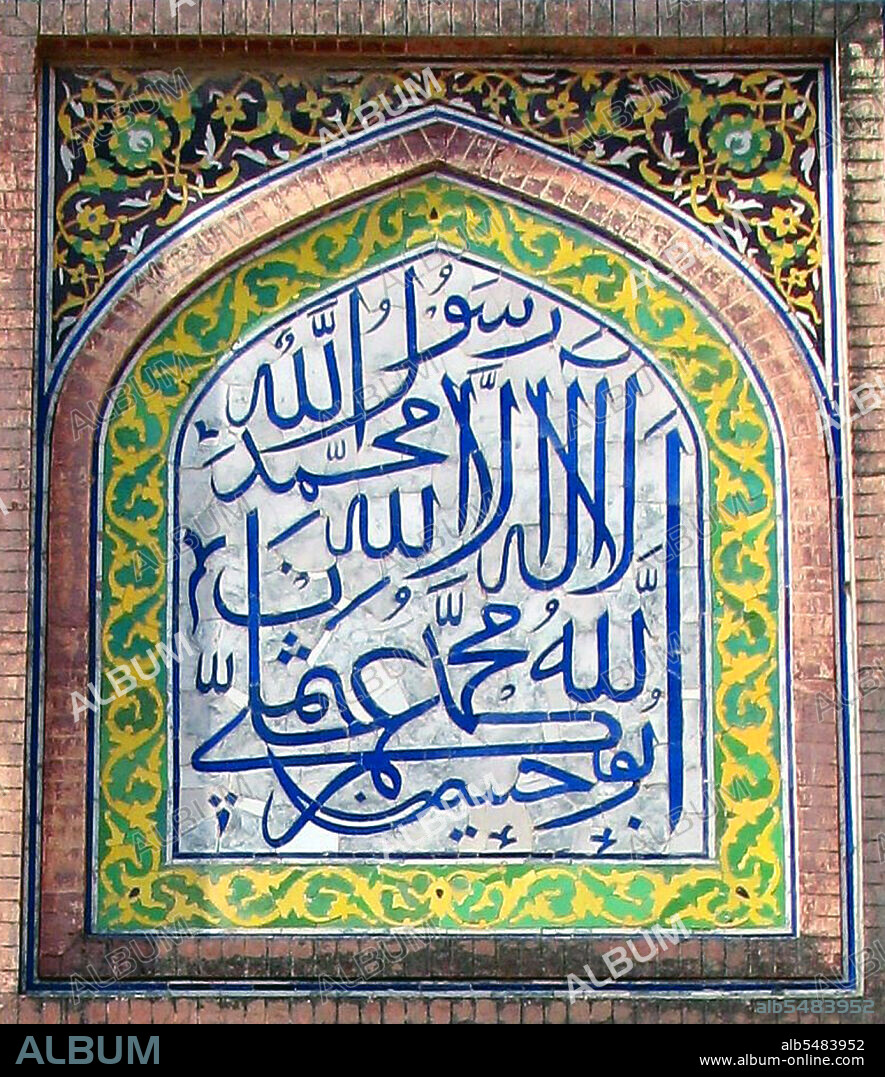alb5483952
Arabic calligraphy on glazed tiles, Wazir Khan Mosque, Lahore.

|
Zu einem anderen Lightbox hinzufügen |
|
Zu einem anderen Lightbox hinzufügen |



Haben Sie bereits ein Konto? Anmelden
Sie haben kein Konto? Registrieren
Dieses Bild kaufen.
Nutzung auswählen:

Titel:
Arabic calligraphy on glazed tiles, Wazir Khan Mosque, Lahore.
Untertitel:
Siehe automatische Übersetzung
The Wazir Khan Mosque (Masjid Wazir Khan) in Lahore, Pakistan, is celebrated for its extensive faience tile work. It has been described as 'a beauty spot on the cheek of Lahore'. It was built in seven years, starting around 1634-1635, during the reign of the Mughal Emperor Shah Jehan. It was built by Shaikh Ilm-ud-din Ansari, a native of Chiniot, who rose to be the court physician to Shah Jahan and later, the Governor of Lahore. He was commonly known as Wazir Khan. The mosque is located inside the Inner City and is easiest accessed from Delhi Gate. (Photo by: Atif Gulzar/Pictures From History/Universal Images Group via Getty Images)
Bildnachweis:
Album / Pictures From History/Universal Images Group
Freigaben (Releases):
Model: Nein - Eigentum: Nein
Rechtefragen?
Rechtefragen?
Bildgröße:
3922 x 4536 px | 50.9 MB
Druckgröße:
33.2 x 38.4 cm | 13.1 x 15.1 in (300 dpi)
Schlüsselwörter:
ARABISCH • ARCHITEKTUR • ASIEN • ASIEN, KONTINENT • GESCHICHTE • ISLAM • ISLAMISCH • ISLAMISCHE ARCHITEKTUR • KALLIGRAPHIE • KONTINENT, ASIEN • KUNST • MOHAMMEDANER • MOHAMMEDANERIN • MOSCHEE • MOSCHEEN • MOSLEM • MOSLEMIN • MUSLIM • MUSLIMIN • RELIGION • ZEITGESCHICHTE
 Pinterest
Pinterest Twitter
Twitter Facebook
Facebook Link kopieren
Link kopieren Email
Email
